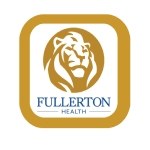Men’s health risks often start quietly. You may feel perfectly fine but hidden threats like heart disease, prostate cancer, and low testosterone can be building up long before symptoms appear.
Preventive screenings aren’t just about ticking boxes, they are a long-term investment in your wellbeing. They help uncover hidden health risks early, before they have a chance to disrupt your life, your career, or the people who depend on you. Today, prevention isn’t a one-time event but a continuous journey – one that begins with a simple test and extends into long-term care, support, and better health over time.
Health Checks for Men in Their 20s and 30s: Building a Strong Foundation

Your 20s and 30s are typically the healthiest years of your life. It’s easy to assume your body will keep up during these high-energy years, but this is exactly when the habits and risks that shape your long-term health are taking root.
Regular blood pressure and cholesterol checks are important now, as changes in the arteries that lead to heart disease can begin quietly during this time. It’s also worth keeping an eye on testosterone levels, especially if you’re noticing signs like unexplained fatigue, weight gain, or a drop in sexual performance.
Recommended tests:
- Blood Pressure and Cholesterol: Detects early signs of heart disease.
- Testosterone Levels: Fatigue, weight gain, and low libido may signal hormonal imbalance.
- BMI and Metabolic Screening: Identifies risks for diabetes and obesity.
“Many men in their 20s only get checked if screenings happen to be part of their corporate benefits,” says Dr Marcus Lee, a Family Physician and Designated Workplace Doctor at Fullerton Health “That’s why intentional workplace wellness offerings are effective. They spot risks early, before they spiral.” If you’re in this age range, you can consider the Essentials or Core men’s health screening packages.
If you’re in this age range, you can consider the Essentials or Core men’s health screening packages.
Health Checks for Men in Their 40s: Staying on Top of Things

By your 40s, the pressures of career, family, and lifestyle often collide just as the body’s natural resilience begins to shift. This is when early signs of bone loss, hormonal imbalances, or cardiovascular stress can emerge. Slower recovery from injuries or persistent back pain is often dismissed as ageing, but these symptoms may signal deeper health issues.
Recommended tests:
- Bone Density Scan: Detects early signs of osteoporosis, which affects 1 in 5 men over 501
- Cardiovascular Profiling: Assesses heart health, blood vessel condition, and stress-related risk factors.
- Hormonal Panel: Monitors testosterone and other key hormone levels that impact energy, mood, and muscle strength.
An integrated approach matters more than ever in your 40s. At Fullerton Health, screenings go beyond diagnosis; they are part of a comprehensive care journey. Through preventive health screening packages like Prime, men receive not only test results but also access to specialist care and rehabilitation, all under one roof. It’s a smarter, more convenient way to take control of your health – with a complete plan to support you at every step.
Health Screenings for Men in Their 50s and Beyond: Guard Your Longevity

Once you reach your 50s, regular health screenings become essential. This is the decade when silent risks can turn into serious conditions – unless you’re actively checking for them.
“Screenings don’t just help us detect cancer or heart disease early,” says Dr Michelle Lee Medical Director at Fullerton Health. “They also open up important conversations around men’s health issues that often go unspoken, like erectile dysfunction or hormonal decline.”
Many men still ignore early signs like fatigue, delayed urination, or sexual changes, brushing them off as “just getting older.”
“These may be early indicators of prostate issues, metabolic disorders, or cardiovascular disease,” she adds. “Preventive care gives men a clearer picture of what’s happening beneath the surface.”
Recommended tests:
- Prostate-Specific Antigen (PSA) Test: Detects early signs of prostate cancer, the most common cancer in Singaporean men2.
- Colorectal Cancer Screening: Catches precancerous growths or early-stage colorectal cancer, especially after 50.
- Cardiovascular and Metabolic Screening: Monitors heart health, blood sugar, and cholesterol.
- Digital Brain Function Screening: Assesses cognitive performance, memory, and reaction time as part of holistic ageing care.
- Hormonal Testing: Tracks testosterone and related hormone levels for changes in energy, muscle health, and mood.
As men move into their 50s and 60s, maintaining cognitive health becomes just as important as protecting the heart or bones. Subtle changes in mental sharpness can occur due to age or stress and often go unnoticed until they affect daily life.
Fullerton’s Digital Brain Function Screening, available as part of the Sapphire and Platinum Executive Health Screening packages or as an add-on to any package, offers an early, non-invasive look at brain performance. It’s a simple yet powerful way to track mental fitness alongside other vital indicators of men’s health.
We understand the stigma that often prevents men from seeking care during this phase of life. That’s why all our packages are designed with discretion, dignity, and digital access in mind. This includes online bookings, screenings within your own private pod, teleconsultations, and app-based results delivery.
“Many men hesitate to discuss urinary or sexual health, even when it’s essential,” says Derrick Chan, Managing Director Singapore and Malaysia at Fullerton Health. “We’ve created our digital ecosystem to eliminate these barriers. With privacy-focused screenings, men can take charge of their health without feeling judged or exposed. This shift in comfort is just as vital as the tests themselves.”
For All Ages: Don’t Overlook Testosterone Testing

Testosterone plays a vital role at every stage of a man’s life, yet it’s one of the most overlooked aspects of men’s health. Beyond sexual function, testosterone affects mood, energy levels, muscle mass, bone density, and even heart health. Low testosterone has been linked to a range of serious health concerns including depression, diabetes, and cardiovascular disease3.
Recommended test:
- Testosterone Level Check: Identifies hormonal imbalances that may impact physical, mental, and emotional wellbeing.
The good news is that testosterone testing is simple and non-invasive, and many cases can be improved with lifestyle changes such as better sleep, exercise, weight management, or stress reduction, often without the need for medication.
Fullerton Health encourages men to treat testosterone as part of their overall preventive care, not just a sexual health issue. By normalising this conversation, we hope to help break down stigma and silence, and putting men in control of their long-term health.
Making Screening Practical, Not a Luxury
The importance of preventive health screening for men is clear. But even with the best intentions, many still put it off delay care due to concerns about time, cost, or convenience.
The truth is, most screenings can be completed within a single morning, and the cost of a preventive package is often a fraction of what it takes to treat advanced illness. Rather than seeing screening as an added burden or luxury, it helps to view it as a practical investment in your future, one that’s manageable and easy to build into everyday life.
Taking the Next Step
Health is not just about reacting when illness strikes. It is about anticipating risks and tackling them head-on. Preventive screenings give men the chance to do exactly that, protecting not only their own wellbeing but also the people who rely on them.
Fullerton Health makes that step easier. With workplace partnerships, integrated care, digital access, and a mission of affordability, men at every life stage can take charge of their health without navigating the checklist alone.
Find out more about Fullerton Health’s Men’s Health Screenings packages today.
References
- International Osteoporosis Foundation, About Osteoporosis. Available at https://www.osteoporosis.foundation/health-professionals/about-osteoporosis/epidemiology (Accessed 7 October 2025)
- National Cancer Centre Singapore, Cancer Statistics. Available at https://www.nccs.com.sg/your-care/about-cancer/cancer-statistics (Accessed 7 October 2025)
- Goodale, T., Sadhu, A., Petak, S., & Robbins, R. (2017). Testosterone and the Heart. Methodist DeBakey cardiovascular journal, 13(2), 68–72. https://doi.org/10.14797/mdcj-13-2-68 (Accessed 10 October 2025)





